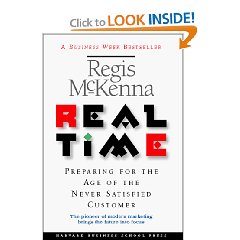The seven essentials of organizational intelligence include widespread truth and rights; freedom of enterprise, liberated teams, equality and diversity, voluntary learning networks, democratic self-rule, and limited corporate government. It was this book, and the very strong applause that the author received from all those attending OSS '96, that caused me to realize that the U.S. Intelligence Community is just chock full of very good people that want to change, but are not being allowed to change by the organizational circumstances within which they are trapped-frozen in time and budget.










